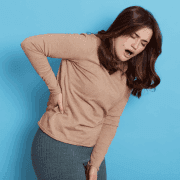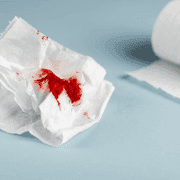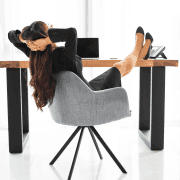Causes of Piles in Women: Understanding the Factors and Finding Relief
In This Article
Causes of Piles in Women: Understanding the Factors and Finding Relief
Prathibha
Updated on January 25, 2025
Medically verified by Dr. Arya
Fact checked by Dr. Fazeela

Proctology
7 min read
Piles, also known as hemorrhoids, are a common yet often uncomfortable condition, particularly in women. Though they are not typically a serious medical concern, they can cause significant discomfort, leading many to seek effective treatment options. Understanding the causes of piles in women is essential for prevention and finding the right piles relief. In this blog, we will explore the piles causes, the specific risk factors that make women more susceptible to this condition, and how to manage and treat it.
What are Piles?
Piles are swollen and inflamed blood vessels in the rectum or anus, which can result in pain, itching, and sometimes bleeding during bowel movements. They are generally classified into two types
1.Internal Hemorrhoids: These occur inside the rectum and are often painless, though they may cause bleeding.
2.External Hemorrhoids: These develop under the skin around the anus, causing pain, itching, and sometimes blood clots.
Piles can affect anyone, but certain factors make women more prone to developing this condition. Let’s take a closer look at the hemorrhoids causes and the risk factors involved.
Causes of Piles in Women
Several factors contribute to the development of piles in women. Some of the key causes of hemorrhoids include
1. Pregnancy
Pregnancy is one of the most significant risk factors for developing piles in women. During pregnancy, the body undergoes several changes, including hormonal fluctuations and increased pressure on the abdomen. The growing uterus puts additional pressure on the veins in the rectal area, which can cause swelling and lead to hemorrhoids. Moreover, hormonal changes can cause the blood vessels in the anus to dilate, further increasing the risk of piles. The increase in progesterone levels during pregnancy also slows down digestion, leading to constipation, another common contributor to piles.
2. Constipation and Straining
Chronic constipation and frequent straining during bowel movements are significant piles causes. Women, especially during pregnancy or menstruation, can experience constipation due to hormonal fluctuations. Straining to pass hard stools can put pressure on the blood vessels in the anal area, resulting in hemorrhoids. If constipation persists over time, the constant pressure and straining exacerbate the condition, making it harder to manage.
3. Menstruation and Hormonal Changes
Hormonal changes during menstruation can also play a role in the development of piles in women. The hormonal shifts before and during menstruation often lead to water retention and bloating, which can increase the pressure on the pelvic region. This, combined with other factors like constipation, can contribute to the formation of hemorrhoids. Women are generally more susceptible to hemorrhoids during pregnancy and menstrual cycles due to these fluctuations in hormones.
4. Obesity
Obesity is another common risk factor in the cause of pile in female patients. Excess body weight puts increased pressure on the pelvic region and can contribute to poor circulation. This can cause the veins around the rectum to become swollen and inflamed, resulting in hemorrhoids. A poor diet, low in fiber and high in processed foods, can also contribute to obesity and constipation, which further exacerbate the piles causes.
5. Sedentary Lifestyle
A lack of physical activity is another factor contributing to piles causes in women. A sedentary lifestyle, particularly prolonged sitting, can impair blood flow in the lower body, increasing the risk of hemorrhoids. Women who sit for extended periods—whether for work, commuting, or leisure—are more likely to develop hemorrhoids due to poor circulation and pressure on the rectal veins.
 5 min read
5 min readDon't Ignore Bummy Pain: Could It Be Piles?
 7 min read
7 min readBlood In The Stool: A Sign You Shouldn’t Ignore
 6 min read
6 min readSitting All Day Wreaking Havoc? It Might Be Piles!
Get a Callback Now
Lifestyle Factors Causing Piles in Women
Certain lifestyle habits significantly influence the risk of developing piles in women. Below are some factors to consider
-
Poor Diet: A diet low in fiber can lead to constipation, which is a major contributor to piles. Women should aim to eat a balanced diet rich in fruits, vegetables, and whole grains to promote healthy digestion and prevent constipation.
-
Lack of Exercise: Regular physical activity helps improve circulation and bowel regularity. Women who engage in regular exercise are less likely to suffer from constipation and hemorrhoids.
-
Not Drinking Enough Water: Dehydration can lead to harder stools, which can cause straining during bowel movements. Drinking plenty of water is crucial for maintaining healthy bowel function and preventing hemorrhoids.
-
Heavy Lifting: Women who frequently lift heavy objects, whether for work or exercise, may place additional pressure on their rectal veins, contributing to hemorrhoid development.
Piles Relief and Treatment
While piles relief may vary depending on the severity of the condition, there are several approaches to managing and alleviating the symptoms. Here are some common treatment options
-
Topical Creams and Ointments: Over-the-counter creams can help soothe inflammation and reduce itching and pain caused by hemorrhoids.
-
Fiber Supplements: Increasing fiber intake through supplements or dietary changes can soften stools, making bowel movements easier and reducing the risk of straining.
-
Warm Sitz Baths: Soaking the affected area in warm water several times a day can provide relief from pain and discomfort.
-
In Severe Cases, Surgery: In more extreme cases, medical procedures like rubber band ligation or hemorrhoidectomy may be necessary to remove the hemorrhoids.
FAQs
1. What are the reasons for piles in women?
The primary reasons for piles in women include pregnancy, constipation, hormonal changes, obesity, a sedentary lifestyle, and heavy lifting.
2. What are the lifestyle factors causing piles in women?
Sedentary habits, poor diet (low in fiber), lack of exercise, dehydration, and heavy lifting are key lifestyle factors that contribute to the development of piles in women.
3. Is constipation a cause of piles in females?
Yes, constipation is a major cause of hemorrhoids in females. Straining during bowel movements due to hard stools can lead to swollen veins in the rectal area, causing piles.
4. Can hemorrhoids be prevented?
Maintaining a high-fiber diet, staying hydrated, exercising regularly, and avoiding excessive straining during bowel movements can help prevent hemorrhoids.
5. Are piles in women always painful?
Not always. Internal hemorrhoids, which occur inside the rectum, may not cause pain, but can lead to bleeding. External hemorrhoids are more likely to cause pain and discomfort.
6. How can I avoid straining during bowel movements?
To avoid straining, it’s essential to consume a diet rich in fiber, stay hydrated, and engage in regular physical activity. Fiber helps soften stools, making them easier to pass, and regular exercise promotes healthy digestion and bowel function.
7. Are hemorrhoids a sign of a more serious condition?
In most cases, hemorrhoids are not a sign of a serious condition. However, if you experience heavy bleeding, severe pain, or the symptoms don’t improve with over-the-counter treatments, it’s important to consult a doctor. Rarely, hemorrhoids could be linked to other medical issues, so a proper diagnosis is vital.
8. Can I use over-the-counter treatments for hemorrhoids during pregnancy? Many over-the-counter treatments, such as creams and ointments, are safe to use during pregnancy, but it’s always advisable to consult with a healthcare provider before using any treatment. Some medications may not be recommended during pregnancy, and your doctor can provide guidance on safe options.
9. How long does it take for piles to heal?
The healing time for hemorrhoids depends on the severity of the condition. Mild hemorrhoids may improve within a few days with proper care and lifestyle changes. More severe hemorrhoids may take weeks to heal, and in some cases, medical procedures may be required for long-term relief.
10. Can surgery be avoided for piles treatment?
In most cases, hemorrhoids can be managed without surgery, using lifestyle changes, topical treatments, and other nonsurgical interventions. Surgery is typically reserved for severe cases where other treatments have failed.
Conclusion
Understanding the cause of piles in female patients and the causes of hemorrhoids is crucial for prevention and effective treatment. Factors like pregnancy, constipation, obesity, and a sedentary lifestyle significantly increase the risk of developing piles. Fortunately, with proper lifestyle changes and timely intervention, women can manage symptoms and seek the necessary piles relief. If you're experiencing severe discomfort or bleeding, it's important to consult with a healthcare professional for the best course of action.
Piles in women are most commonly caused by pregnancy, constipation, hormonal changes, obesity, and a sedentary lifestyle.
Hemorrhoids cause inflammation and swelling of the blood vessels in the rectum, leading to pain, itching, and discomfort.
Preventing piles causes involves maintaining a fiber-rich diet, staying hydrated, and engaging in regular physical activity.
Piles relief can be achieved with lifestyle adjustments, over-the-counter creams, and sometimes medical interventions, including surgery in extreme cases.
Constipation is one of the leading causes of piles in females, making it essential to manage bowel health to prevent hemorrhoids.
Source Links
Mayo Clinic – Hemorrhoids Overview
WebMD – Causes of Hemorrhoids
Max Healthcare - Piles in Women



